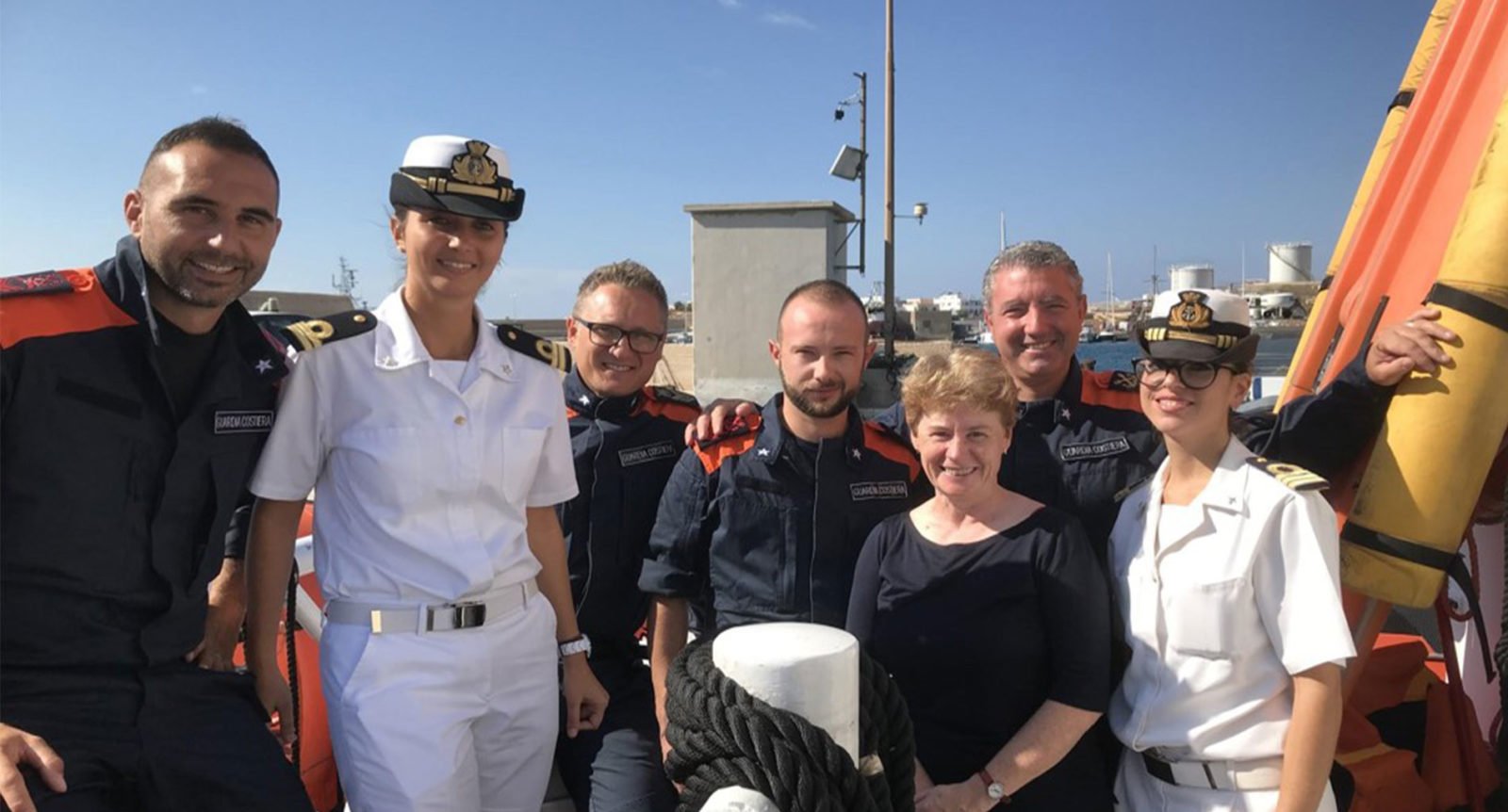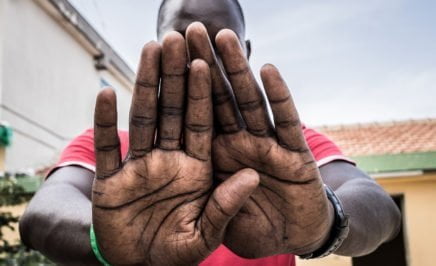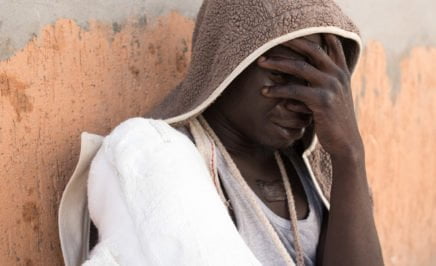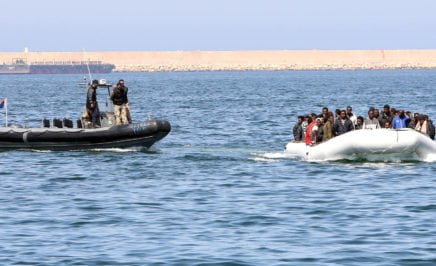Our National Director Claire Mallinson has just spent a week in Greece and Italy — two countries that have become the gateways to Europe for refugees and people seeking asylum. This is her second update. Catch up on her first update here.
Lampedusa and Sicily
Lampedusa is roughly halfway between Libya and Sicily, and over the last 30 years has seen hundreds of thousands of people cross the water to seek asylum. There, I met Dr Pietro Bartolo, an inspiring charismatic doctor who has helped countless refugees and migrants. You can see him in the film Fire at Sea which you can watch the trailer for here.
Pietro shared with us the stories and images of the men, women and children who had experienced years of suffering as they flee wars in Syria and Afghanistan, and poverty in Africa.
Libya is described by everyone he has treated as “hell”. This phrase was repeated to me time and again by people I met in Sicily.
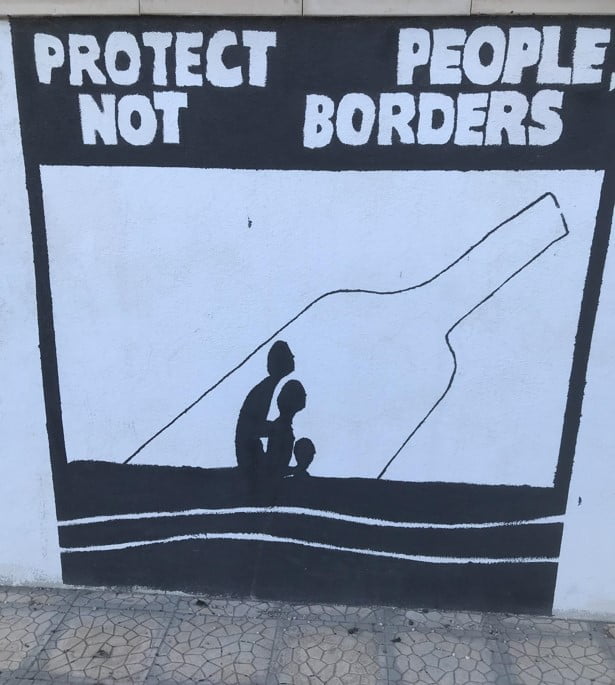
Pietro told us that every woman who had come via Libya had been raped — many multiple times. He showed us images of children who were starved and then “skinned” so badly that their legs had to be amputated. The lethal combination of benzine and seawater on skin literally burns and peels skin away from your body. This is mostly happening to women and children, as they tend to be sitting in the middle of the small boats as this is thought to be the safest place.
After meeting Pietro, we met with the courageous members of the Italian coastguard who have helped rescue thousands of people. Thanks to Amnesty’s efforts, we helped to get the coastguard the best possible boats to make rescues and save lives at sea.
Villa Skania Centre, Sicily
The majority of people who arrive in Lampedusa are sent to Sicily. I visited an open centre about two hours from Palermo.
At this centre, I again heard the phrase “Libya is hell”, and women and men described how they were robbed, tortured, raped, kidnapped and attacked.
Their journeys are long — two years on average. Some have traveled for seven years. Some have crossed deserts, others mountains, and many of their family members and friends lost their lives along the way.
The impacts of these journeys stays with them forever, visibly on their bodies and less visibly in their minds. And yet, these babies, children, women and men have committed no crimes. Europe has not only turned its back on vulnerable people, but sadly, it has now started to adopt some of the Australian government’s worst policies which lead to abuse, deaths and despair.
It’s clear from my trip to Italy and Greece that we must redouble our efforts and get our leaders to adopt a better plan for refugees.
There is a better approach — one that ensures safe pathways, increased humanitarian settlement places, wealthy countries taking their fair share of the burden and treating everyone with dignity.
Please join us in advocating for a #BetterPlan, and be on the right side of history.
